Unilever Vietnam brings circular economy to life
According to a study on Vietnam's plastics circularity issued by the International Finance Corporation and World Bank, Vietnam’s plastic recycling ratio stands at about 33 per cent. This is mainly because plastic waste segregation at source (SAS) and collection have not been reinforced and consistently implemented.
The “Plastic Segregation for Recycling” event by Unilever and District 7 People's Committee helped people understand the importance of proper waste segregation at home to support plastic collection and recycling instead of causing environmental pollution. When waste segregation is properly practised, recycling will be more easily facilitated at much less cost. This underpins the plastic circularity for environmental and economic benefits.
At the event, District 7 People’s Committee, Unilever Vietnam, and its brands such as Comfort, Sunlight, Knorr, Clear, P/S, and Lifebuoy, provided a range of activities.
The Circular Economy Exhibition, which introduces the comprehensive plastic circularity, from segregation at source, collection, recycling to manufacturing PCR-made packaging, visualises the circular economy for people to better understand the model. In addition, people can practice segregation on-site via game-based activities such as exchanging plastic waste for rewards or taking photos with SAS messages.
The event marks an important milestone for the “Plastic waste SAS, collection and recycling to drive circular economy model” partnership between Unilever Vietnam and District 7 People’s Committee by 2025, aiming towards strengthening plastic waste management, including reduction, reuse and recycling.
The partnership will focus on bringing the circular economy model to people’s lives and generating widespread public awareness towards environmental protection by establishing and maintaining the habit of segregating waste at home.
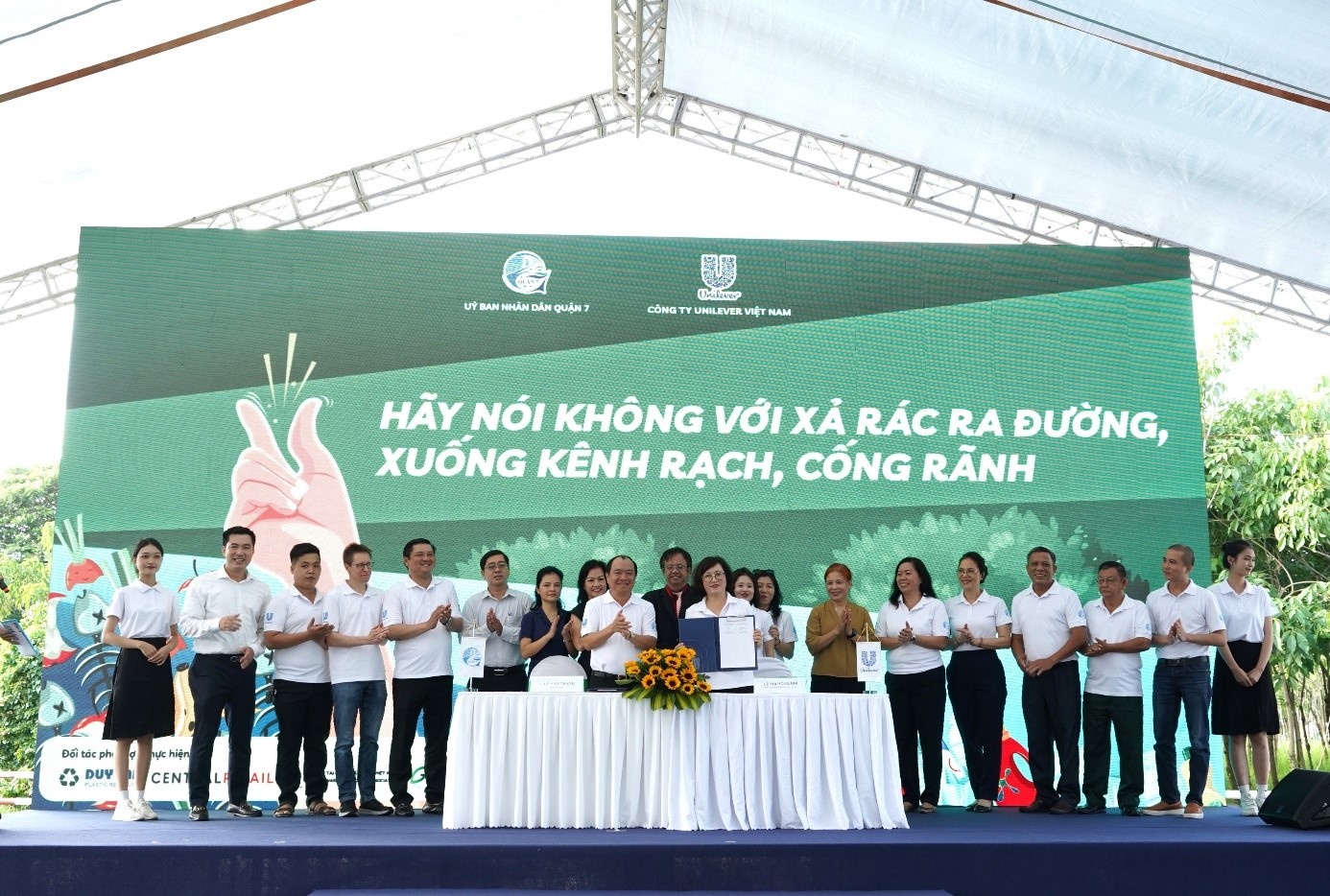 |
| The memorandum signing by representatives of Unilever and the People’s Committee of District 7 in Ho Chi Minh City for “Segregate, collect and recycle plastic waste in circular economy model” |
The initiative will also implement communication and education activities to encourage responsible consumption and plastic waste management habits via conferences, national television channels, distribution channels, supermarkets, schools, and residential communities.
After the communities segregate plastic waste at home, local collection agencies will do the collection to transfer to recyclers like Duy Tan Recycling to process the waste into PCR plastic beads, which are used as the input material in packaging manufacturing for products of Unilever and other businesses.
Distributors like Central Retail will deliver products with PCR-made packaging to consumers, while encouraging consumers to do SAS to facilitate the next cycle of plastic waste.
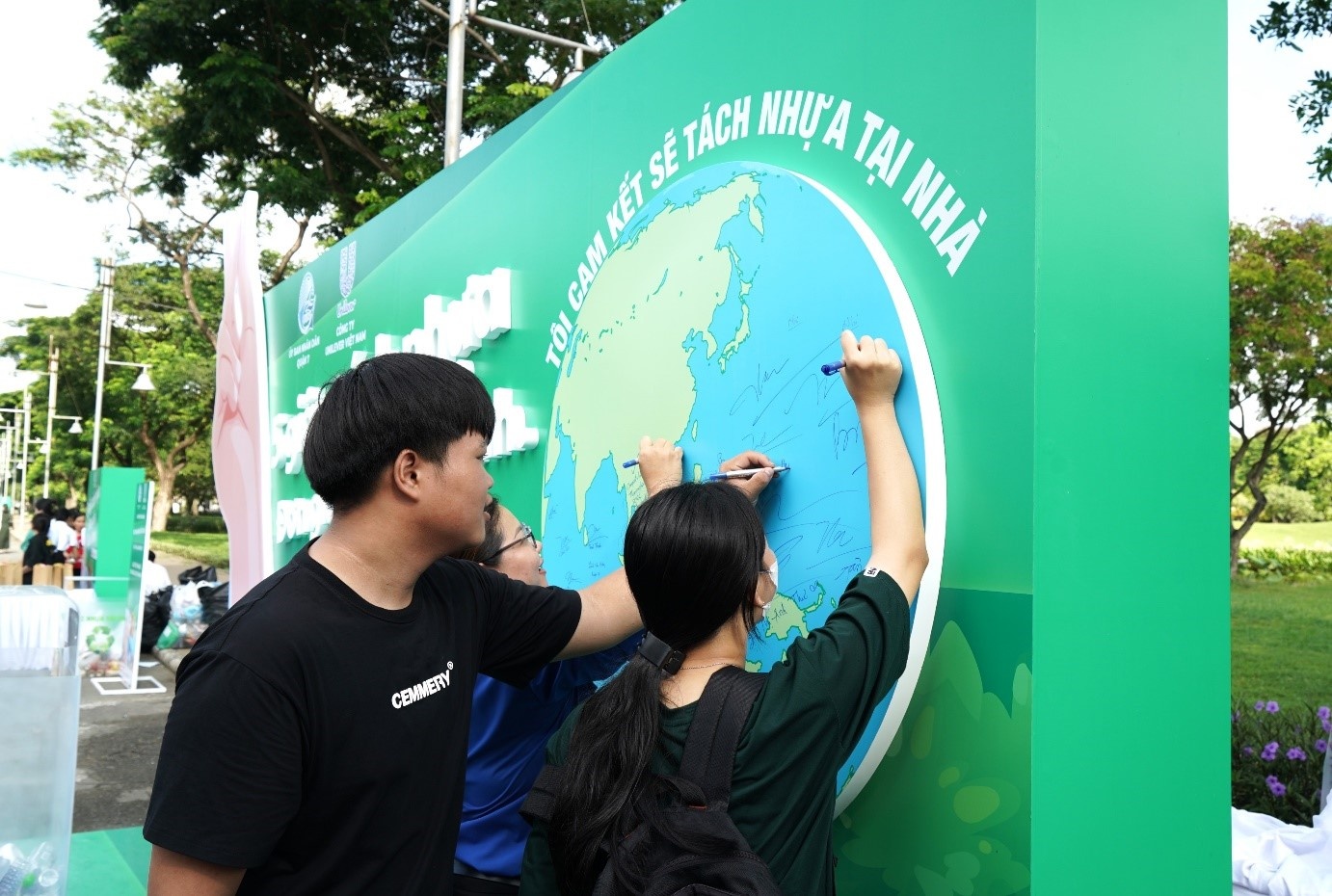 |
| Excited residents sign the Memo Wall, showcasing their commitment to SAS |
The partnership will also open up for collaboration between the public and private sectors, to work together on better solutions and make the plastic circularity model more widespread in other regions of Ho Chi Minh City and across the country in the near future.
With more than 35 million Unilever products consumed daily by Vietnamese people, the company has consistently pioneered driving multiple long-term, comprehensive strategies towards efficient plastic waste management.
The partnership with District 7 People’s Committee greatly contributes to Unilever’s goal to collect and process more plastic than is used in packaging by 2025.
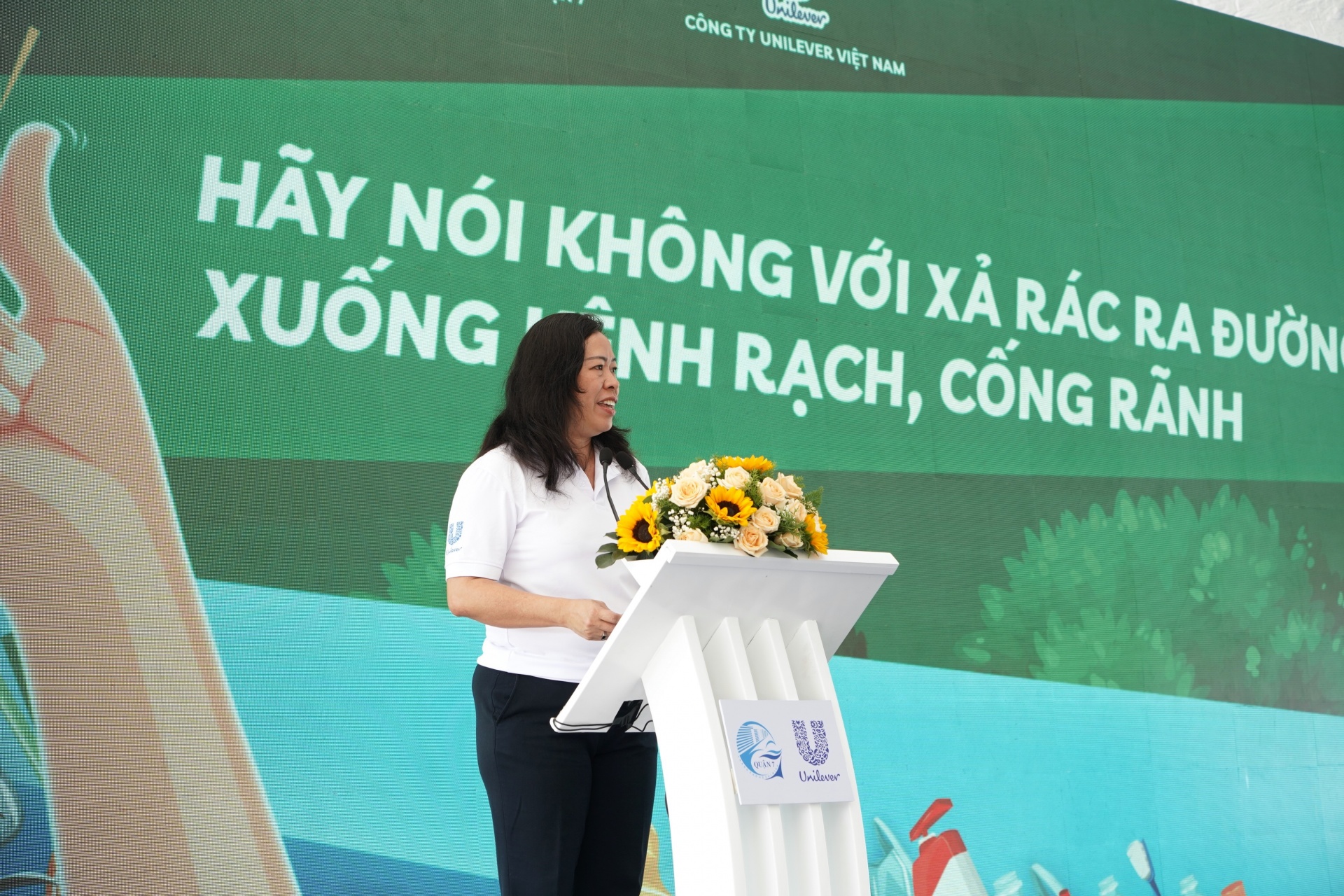 |
| Nguyen Thi Bich Van, chairperson of Unilever Vietnam, at the event |
“The circular economy model not only helps reduce resource wastage, but also contributes to protecting the environment by preventing plastic waste from polluting the landfill or oceans. To implement this model, the first and most fundamental step is segregation at source. Only when the plastic waste is properly sorted can we collect the good-quality plastic for subsequent recycling,” said Nguyen Thi Bich Van, chairperson of Unilever Vietnam.
Currently, Unilever Vietnam has collected and processed more than 20,000 tonnes of plastic waste through many partnership schemes, achieving 73 per cent recyclability and 82 per cent virgin plastic reduction through absolute reduction and PCR inclusion in packaging manufacturing.
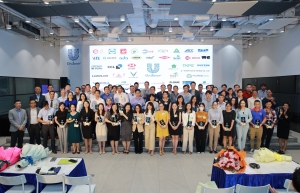 | Unilever Vietnam to build net-zero value chain by 2039 Unilever Vietnam has reaffirmed its commitment to climate action by building a carbon net-zero value chain by 2039. |
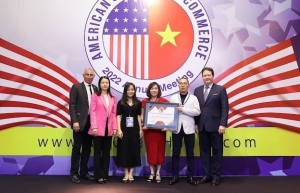 | Unilever Vietnam recognised at multiple CSR Awards Unilever Vietnam has been honoured at a range of CSR Awards by prestigious associations and organisations, attesting to the company's constant efforts on its journey to carry out the mission of making sustainable living commonplace in Vietnam. |
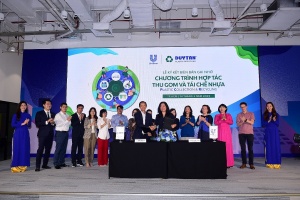 | Unilever Vietnam partners with Duy Tan Recycling Unilever Vietnam has just signed a partnership with Duy Tan Recycling with a plan to collect and recycle 30,000 tonnes of plastic waste. |
What the stars mean:
★ Poor ★ ★ Promising ★★★ Good ★★★★ Very good ★★★★★ Exceptional
 Tag:
Tag:
Related Contents
Latest News
More News
- Bac Ai Pumped Storage Hydropower Plant to enter peak construction phase (January 27, 2026 | 08:00)
- ASEAN could scale up sustainable aviation fuel by 2050 (January 24, 2026 | 10:19)
- 64,000 hectares of sea allocated for offshore wind surveys (January 22, 2026 | 20:23)
- EVN secures financing for Quang Trach II LNG power plant (January 17, 2026 | 15:55)
- PC1 teams up with DENZAI on regional wind projects (January 16, 2026 | 21:18)
- Innovation and ESG practices drive green transition in the digital era (January 16, 2026 | 16:51)
- Bac Ai hydropower works stay on track despite holiday period (January 16, 2026 | 16:19)
- Fugro extends MoU with PTSC G&S to support offshore wind growth (January 14, 2026 | 15:59)
- Pacifico Energy starts commercial operations at Sunpro Wind Farm in Mekong Delta (January 12, 2026 | 14:01)
- Honda launches electric two-wheeler, expands charging infrastructure (January 12, 2026 | 14:00)






















 Mobile Version
Mobile Version